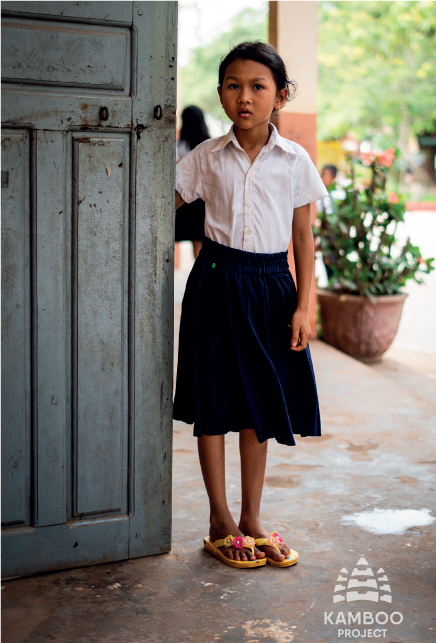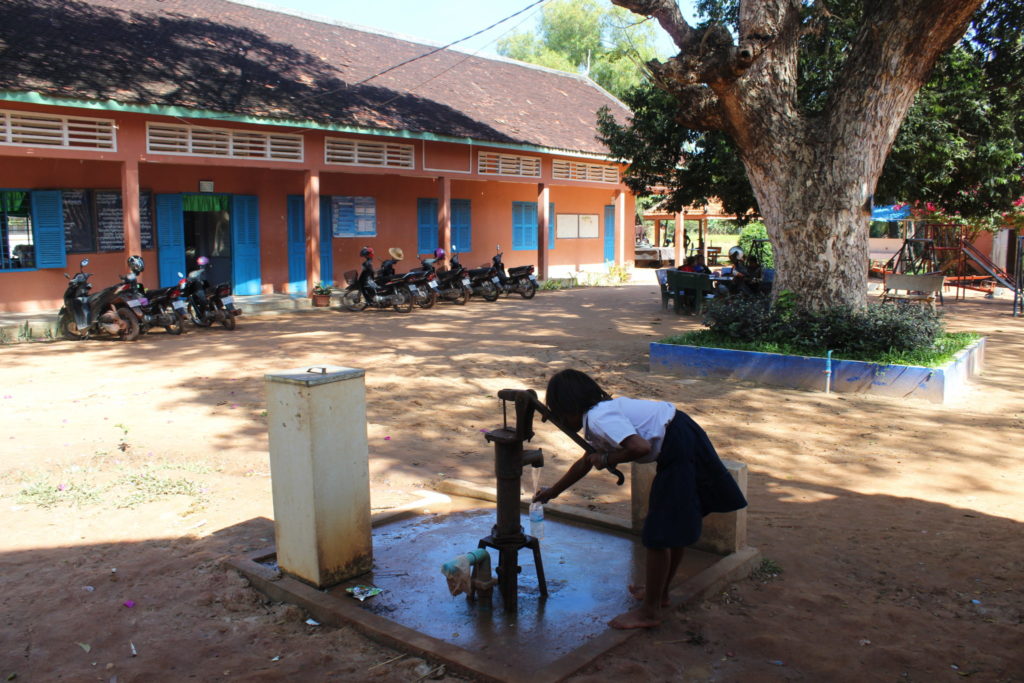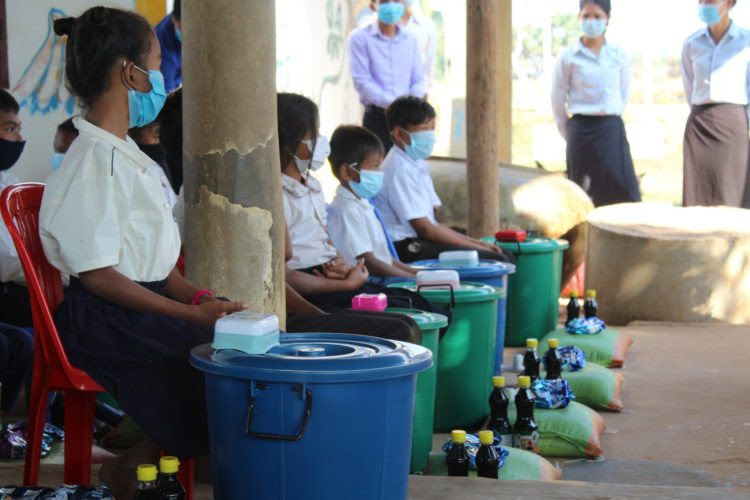SHIP PROJECT
Ensuring Clean, Safe and Dignified School Environment for Effective Learning
Kamboo Project tackles Cambodia’s WASH (water, sanitation, and hygiene) challenges head-on, emphasizing clean, safe school environments and vital hygiene education for teachers and students. With a focus on school-based WASH initiatives in the Prasat Bakong District, the project elevates health standards for students and educators alike. By encouraging the dissemination of crucial knowledge to local communities, Kamboo Project is driving positive health outcomes across the region.
Background
Educational environments suffer from poor hygiene facilities
Among its comprehensive set of 17 Sustainable Development Goals, the United Nations 2030 Agenda for Sustainable Development includes the goal to “ensure the availability and sustainable management of water and sanitation for all” (Goal 6 ). This commitment goes beyond universal access to drinking water, prioritizing equitable sanitation and hygiene practices, particularly for women and girls in vulnerable situations. These efforts are crucial to safeguarding public health and preserving human dignity.
Within the realm of schools, this aspect is especially salient. UNICEF states that “every child has the right to a quality education,” which includes access to safe water, sanitation and hygiene (WASH) services while in school. Implementing appropriate WASH standards not only promotes student well-being but also cultivates an environment conducive to learning.
While Cambodia has made continuous progress towards WASH goals, it remains far from achieving widespread implementation of these standards. Thus, the country grapples with the highest regional rate of open defecation: In the absence of sufficient toilet facilities, eight in ten of the poorest rural Cambodians resort to fields, open water, or other exposed areas for sanitation needs, resulting in significant health risks.
Kamboo Project is dedicated to addressing Cambodia’s WASH challenges through targeted initiatives that prioritize promoting clean and safe school environments while instilling crucial hygiene practices among teachers and students with a tailor-made hygiene program SHIP (School Hygiene Improvement Program).


Initial Experience
Developing and embedding the Sustainable Hygiene Improvement Program
Under the guidance of two German environmental scientists who visited us in 2017-2018, our local team has developed the Sustainable Hygiene Improvement Program (SHIP) for elementary schools, poised to yield lasting benefits for children. Designed in accordance with the health education framework outlined by the provincial department of education in Siem Reap, our initiative has seen successful implementation across nine elementary schools in the Prasat Bakong District since 2020, with ongoing monitoring and follow-up activities now underway.
Implementation and objectives
Objective 1: Training and support for school staff
- Train and recruit health ed teachers in each participating school.
- Develop a school health curriculum based on the National School Health Policy and the Training Need Assessment (TNA).
- Facilitate train-the-trainer (ToT) sessions for head teachers, pedagogical staff, and health education instructors, focusing on effective school health management, health promotion, WASH (Water, Sanitation, and Hygiene), and environmental education. These sessions will cover topics such as basic hygiene and sanitation, clean water practices, proper latrine usage, prevention of COVID-19 and other infectious diseases.
Objective 2: Enhance understanding of hygiene practices to instill positive behaviors among school children and students, promoting disease prevention and mitigating everyday risks.
- Conduct teacher-led training sessions with students on WASH and environmental education, covering topics like basic hygiene and sanitation, clean water practices, latrine usage, COVID-19, and other infectious diseases. This includes establishing a school commitment with the principal and forming a teacher support committee for the program.
- Establish a student support committee to oversee WASH practices within the school.
- Creation and distribution of posters and educational materials by learners within the school.
- Organize teacher and student-led hygiene awareness campaigns in local communities.
- Establish a student support committee for effective waste management.
Objective 3: Empower the school management committee and schools to take sustainable ownership of the program post-implementation.
Kamboo Project aims to extend SHIP to the 52 schools in the Prasat Bakong District with which we generally cooperate across various projects, partnering to enhance hygiene practices and cultivate an optimal learning environment.
How we measure success:Budget
Unfortunately, there is no “standard investment size” for a SHIP project, as the required funding largely hinges on the size of each school. For a school with 15 teachers and 500 students, for example, the investment amounts to around $5,000 over a two-year project period.
Local residents in the vicinity of a selected school stand to benefit indirectly, as the institution disseminates the acquired knowledge back into their communities, amplifying the impact of each donation. Should a partial donation be made towards a SHIP project, Kamboo Project commits to supplementing the total funding from its non-earmarked funds, ensuring the project’s completion.

